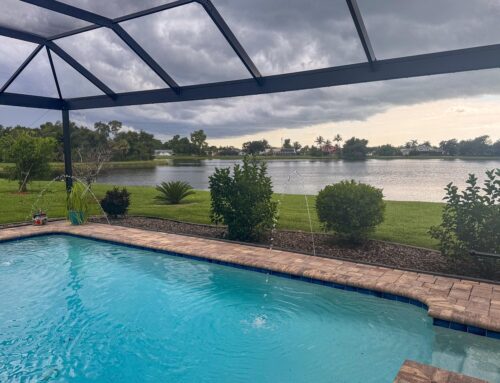Many Floridians purchase home insurance when they buy their houses, then throw the policy into a junk drawer and never look at it again – unless the time comes to file a claim. But the time to get to know your home insurance policy isn’t after you suffer a fire or other type of damage. By that time, It could be too late.
So, we’ve decided to create a short homeowners insurance quiz, to help you see how well you know your policies benefits. See if you can answer the following questions about your coverage.
1. Your neighbor’s tree falls on your house, damaging your roof. Who pays for repairs?
A) Your home insurance
B) Your neighbor’s home insurance
Answer: A) Your home insurance, as long as the tree was healthy. If the tree was rotting, and especially if you can document that you had asked the neighbor to trim or remove it, your provider may try to recover repair costs from your neighbor’s insurance company.
2. Home insurance protects only the structure of your house.
A) True
B) False
Answer: B) It also protects the structure of any other buildings on your property, your personal possessions, helps pay living expenses if a covered incident leaves your place uninhabitable, and can pitch in if you’re responsible for a visitor’s injuries on your property.
3. Damage from the following typically is covered by standard home insurance.
A) Flooding
B) Earthquakes
C) Meteors
Answer: C) Standard Florida homeowners insurance does not cover flooding or earthquakes – you’ll need a separate policy or endorsement for that. However, if a meteor or piece of space debris falls on your home, you’ll get help.
4. I should keep my home insurance deductible low so I won’t have to pay as much when I file a claim.
A) True
B) False
Answer: B) There are a couple of reasons you shouldn’t opt for a smaller deductible – the amount you agree to pay out-of-pocket toward a claim before your policy kicks in. First, your deductible has an inverse relationship with your premiums – the higher the deductible, the lower the premium (all other factors being equal). Second, a higher deductible will discourage you from filing smaller claims; filing a lot of claims can cause your premiums to increase, or your provider could cancel coverage altogether. One caveat: Don’t set your deductible at an amount you can’t raise in a pinch.
5.Which of the following affects how much you pay for home insurance?
A) Your retirement portfolio
B) Your college transcripts
C) Your tax bracket
D) Your credit report
Answer: D) Most insurance providers believe that your credit report provides a valid prediction into the likelihood that you’ll file insurance claims – in general, the more credit flaws you have, the greater chance you’ll file claims.
Okay – So how’d you do? Homeowners insurance can sometimes be tricky, and that’s why it’s best to discuss your needs with a licensed agent before you rush into a policy or before you simply renew it without thinking. Make sure you’ve got coverage that’s appropriate for your situation. If you’re unsure, contact Anderson & Associates today for a quick homeowners policy review. We’ll be able to answer any questions that you have, and let you know if you’re getting the best value for your premium payments.








